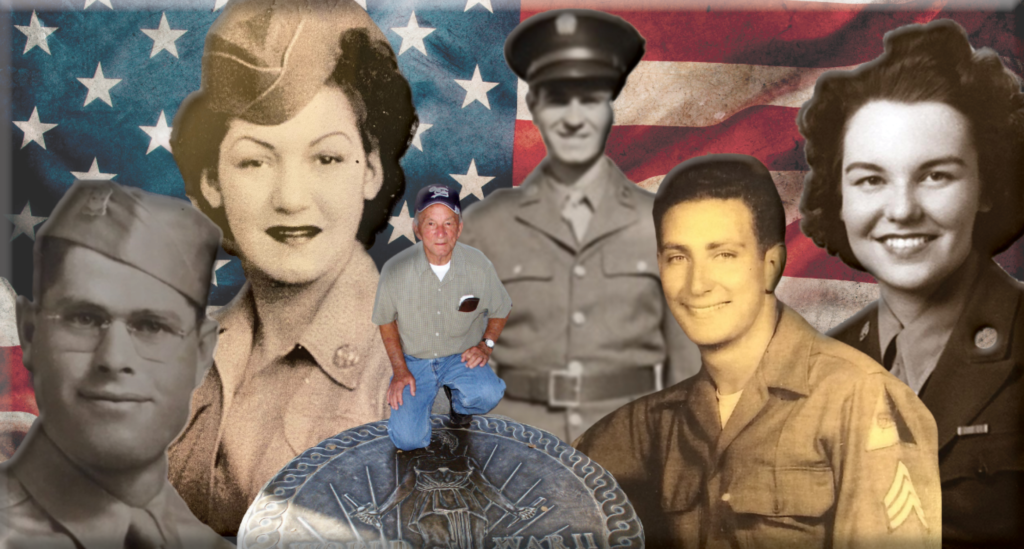Pearl Harbor’s 80th Anniversary: Remembering the Greatest Generation

On December 7th we observed the 80th anniversary of the attack on Pearl Harbor. Pearl Harbor is a pivotal point in American history. Each year we remember December 7, the day that triggered the entry of the United States into WWII. However, today the number of Americans, also known as “the greatest generation,” who lived through the attack diminishes. Therefore, we want to remember the thoughts and words of people who remember “the day that will live in infamy” and the events that would follow, changing the course of our history.
Joe Caserta, World War II Purple Heart recipient and tank commander of “Everlasting” in the Spearhead Division, stated, “I was so blessed to go through the whole Normandy France Belgium campaign, the Battle of the Bulge, without getting hurt real bad. So many of my friends had their tanks shot out from under them, but I never had a direct hit, only small arms fire.” He went on to say, “Somebody was looking out for me.” Caserta also took part in the Battle of Cologne, which is the basis of the book Spearhead, and perhaps the most famous tank battle in history.
Debra Stern, US Army, WWII veteran, recollected, “We didn’t know about war like my sons did. We lived in peace; we weren’t rich but living.” She continued, “When the war came, everybody ran to help. That is why they call us the greatest generation because we were all eager to go.” Stern was stationed at Camp Shanks. It was the largest embarkation camp used during World War II. Approximately 1.3 million troops came through Camp Shanks before heading overseas, given the nickname “Last Stop, USA.”
Elvis Summers, WWII Veteran United States Army, said, “I trained with the infantry.” He stated, “I never really had much experience with a weapon before the Army.” But, Summers explained, “the military was a job, and you got used to what you had to do, and I enjoyed my job.”
Andrew Mantlik, WWII Veteran United States Army, noted, “I had a good job there, and I was lucky to get it.” Mantlik explained what he learned from the military, “It taught me to love people because we learned to take care of each other and love one another, which I never forgot.” As part of the 95th Infantry Division, 1st Battalion, 379th Infantry, also known as the Connecticut Men and “Victory Division,” Mantlik received two commendation letters for his military service during WWII with one of them being from General Patton.
Susan Rudd had to lie to her mother to join the Women’s Army Auxilary Corps (WAAC) after the attack on Pearl Harbor. She stated, “They didn’t know what to do with us at first.” Rudd eventually became a Link trainer, teaching cadets instrument flying in simulators. Out of forty trainers, three were women.
Annalene Renner, the surviving spouse of WWII Army Veteran Logan Renner, recalled what happened when she took her late husband to see the boat that took him overseas. She stated, “When he got on that ship, he changed to a whole different person. He went back in time. It was like he was there all over again.” She revealed how hard it was to see him like that. He was overcome by memories.
As we recognize a shrinking number of surviving World War II Veterans, we must not let their stories fade. Instead, we must continue to honor the service and sacrifices of our servicemen and women who commit to bravely serve our country by remembering their stories and actions.
